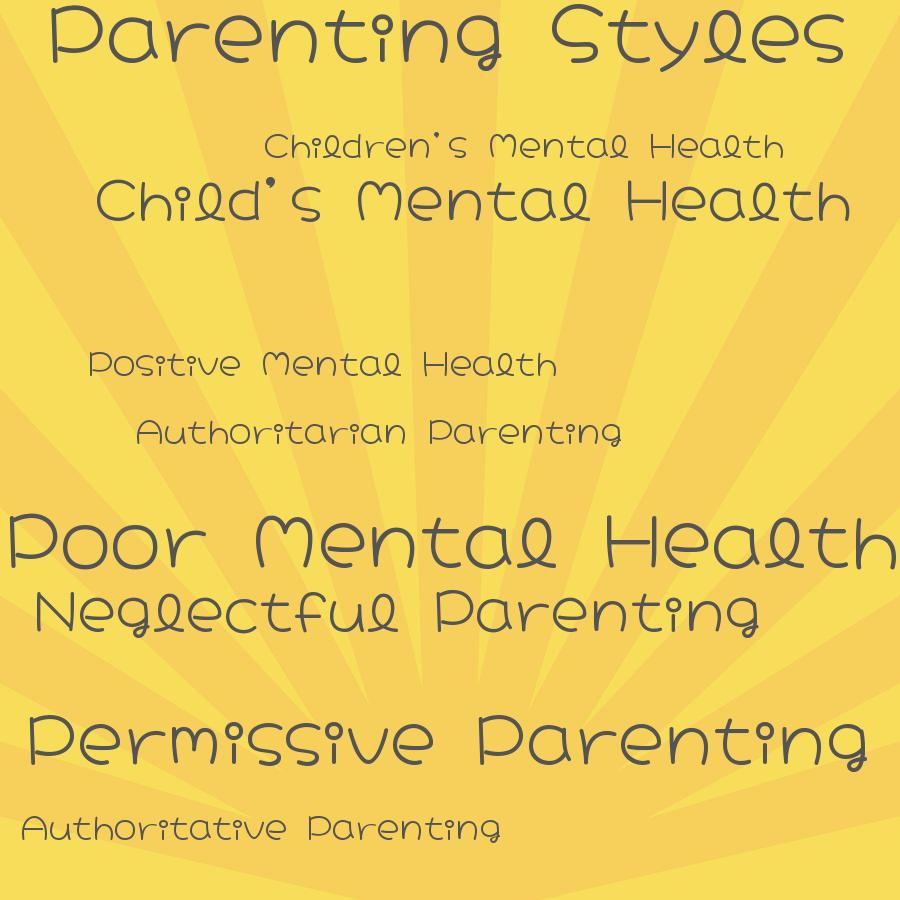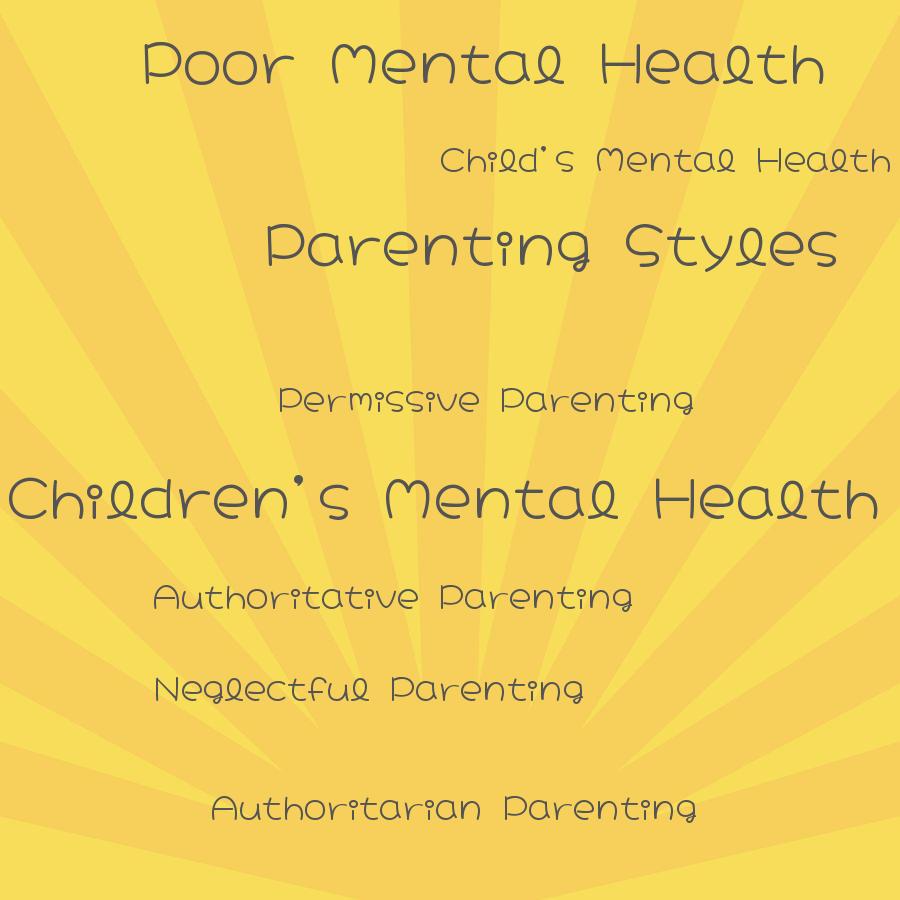Different parenting styles can have a significant impact on a child’s mental health. Authoritative parenting, which balances warmth and discipline, tends to promote positive outcomes for children. In contrast, authoritarian and permissive parenting can lead to negative outcomes such as anxiety, depression, and behavioral problems.
As a child, I remember watching my best friend’s parents interact with her in a way that was foreign to me. They were strict and authoritative, whereas my own parents were more laid-back and permissive.
While my friend seemed to thrive under their guidance, I couldn’t help but wonder if their parenting style had any impact on her mental health.
Years later, as an adult and a mother myself, I find myself pondering this question once again. How do different parenting styles impact a child’s mental health? Is there one “right” way to raise children?
As it turns out, the answer is not so simple. Through my research and personal experience, I have come to realize that each parenting style has its own unique effects on children’s emotional well-being.
In this blog post, we will explore the different types of parenting styles and how they can shape a child’s mental health for better or for worse. So grab a cup of coffee (or tea) and join me as we delve into the fascinating world of parenting psychology!
Here You Will Learn:
Authoritarian Parenting and Mental Health


As I mentioned in the intro, my best friend’s parents were strict and authoritative. This type of parenting style is known as authoritarian parenting.
Authoritarian parents are often described as “strict disciplinarians” who value obedience above all else. They set high expectations for their children but offer little emotional support or warmth.
Studies have shown that children raised by authoritarian parents may be at a higher risk for mental health issues such as anxiety and depression. This is because these children often feel pressured to meet their parent’s high standards without any room for mistakes or failure.
The lack of emotional support from authoritarian parents can leave children feeling isolated and disconnected from their family members, which can lead to feelings of loneliness and low self-esteem.
It’s important to note that not all children raised by authoritarian parents will experience negative mental health outcomes. However, it is crucial for these types of caregivers to recognize the potential impact they may have on their child’s well-being and make efforts towards providing more emotional support while still maintaining boundaries.
The Effects of Permissive Parenting On Children’s Mental Health
As I mentioned in the introduction, my own parents were more permissive in their parenting style. They allowed me a lot of freedom and independence, which I appreciated as a child.
However, research has shown that this type of parenting can have negative effects on children’s mental health.
Permissive parents tend to be very lenient and indulgent with their children. They often avoid setting rules or enforcing consequences for misbehavior.
While this may seem like an easygoing approach to parenting, it can actually lead to problems down the line.
Children who grow up with permissive parents may struggle with self-discipline and impulse control later in life. Without clear boundaries or expectations set by their caregivers, they may not learn how to regulate their emotions or behavior effectively.
Permissive parenting can lead to feelings of anxiety and insecurity for some children. When there are no clear guidelines for what is expected of them at home or at school, they may feel unsure about how they fit into the world around them.
It’s important to note that not all children will experience negative effects from permissive parenting – every child is different! However,it’s essential for parents who choose this style should ensure that there are still some basic rules set so as not leave room for chaos while raising kids under such conditions.
Neglectful Parenting: A Recipe for Poor Mental Health in Children
Neglectful parenting is a style that involves parents who are uninvolved and emotionally detached from their children. These parents may provide for their child’s basic needs, such as food and shelter, but they do not offer emotional support or guidance.
As a result, children of neglectful parents often feel ignored and neglected.
Growing up with neglectful parenting can have serious consequences on a child’s mental health. Children who experience this type of upbringing may struggle with low self-esteem, anxiety disorders, depression or other mental health issues later in life.
I remember my childhood friend whose mother was always busy working long hours at her job while her father was mostly absent from the family home due to his addiction problems. My friend would often come over to our house seeking comfort because she felt lonely at home without any parental attention or affection.
Neglectful parenting can also lead to behavioral problems in children as they seek attention through negative means like acting out in school or engaging in risky behaviors outside the home. It is important for caregivers to understand that providing physical necessities alone does not suffice; emotional support plays an equally crucial role in shaping healthy development outcomes for kids.
Neglecting your child’s emotional needs could be detrimental both now and later on when it comes down to their overall well-being – mentally speaking!
How Authoritative Parenting Can Promote Positive Mental Health in Kids
As I delved deeper into the world of parenting psychology, I discovered that authoritative parenting is often considered the gold standard for promoting positive mental health in children. This style of parenting strikes a balance between being nurturing and setting clear boundaries.
Parents who practice authoritative parenting are warm and responsive to their child’s needs while also maintaining high expectations for behavior. They provide structure and guidance but also allow room for independence and decision-making.
Studies have shown that children raised by authoritative parents tend to have higher self-esteem, better social skills, lower levels of anxiety and depression, as well as improved academic performance compared to those raised under other styles such as authoritarian or permissive. As someone who grew up with more permissive parents myself, it was eye-opening to learn about the benefits of this approach.
While it may seem counterintuitive at first glance – after all, shouldn’t strict rules lead to better outcomes? – research has consistently shown that a balanced approach is key when it comes to raising healthy kids.
Helicopter Parenting: When Too Much Involvement Harms a Child’s Well-being
As a blogger and a mother, I have seen firsthand the effects of helicopter parenting on children’s mental health. Helicopter parents are those who hover over their children, constantly monitoring their every move and decision.
While these parents may have good intentions, their excessive involvement can actually harm rather than help their child’s well-being.
I remember attending my son’s soccer game where one parent was shouting instructions at his child from the sidelines throughout the entire match. The child looked visibly stressed and overwhelmed by his father’s constant interference in his play.
Studies show that helicopter parenting can lead to increased anxiety levels in children as they grow older. These kids tend to lack confidence in making decisions for themselves because they are used to relying on someone else for guidance all the time.
Furthermore, when these kids face challenges or failures later in life without parental intervention or support, it can be difficult for them to cope with stressors independently since they never learned how before.
While being involved is important as a parent; too much involvement could do more harm than good when it comes down to your kid’s mental health development